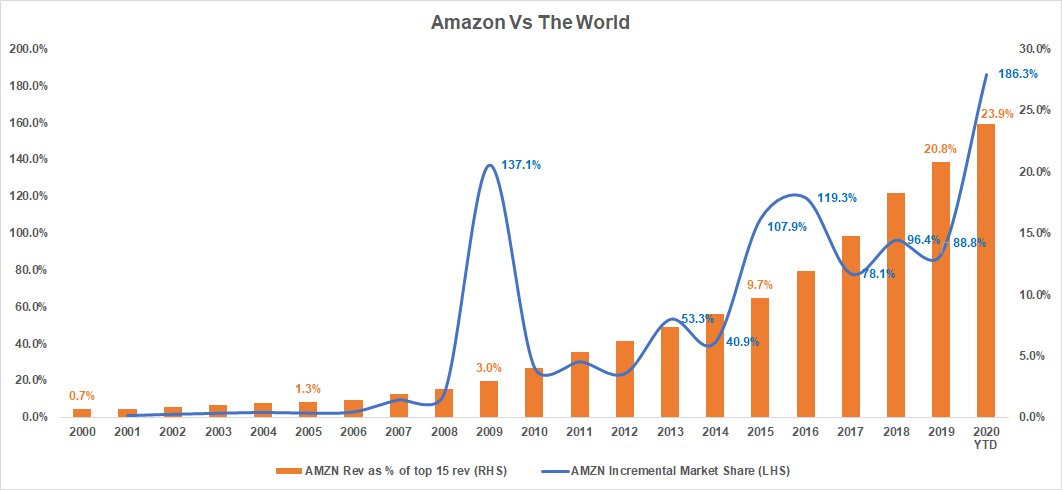
1/ Thread: The Superpowers in Investing
Investing has been dubbed as the last liberal art.
Unless your name is Jim Simons, raw intelligence or brain power is perhaps not a sure-fire way to be successful investors.
Investing has been dubbed as the last liberal art.
Unless your name is Jim Simons, raw intelligence or brain power is perhaps not a sure-fire way to be successful investors.
2/ The more I think about it, the more convinced I am on just three superpowers in investing.
I. A bias for optimism
II. A better grip on time
III. The ability to imagine turbulent times
Let me elaborate.
I. A bias for optimism
II. A better grip on time
III. The ability to imagine turbulent times
Let me elaborate.
3/ I. “Pessimists sound smart, optimists make money”.
Pessimism not only appears more rational, but it can also sound seductive to many.
Compared to pessimists' elaborate and complex theories, optimists often come up with very naïve sounding thesis.
Pessimism not only appears more rational, but it can also sound seductive to many.
Compared to pessimists' elaborate and complex theories, optimists often come up with very naïve sounding thesis.
4/ Sometimes these can be literally one-liner thesis: think buying $ZM because we all are video conferencing or buying $PLTN since we are all stuck at home.
5/ The secret to the triumph of the optimists is not naivete, but an openness to the possibilities which is juxtaposed by a more level-headed assessment of those possibilities.
For long-only investors, if you are not generally optimistic, you are probably in the wrong business.
For long-only investors, if you are not generally optimistic, you are probably in the wrong business.
6/ II. This is largely tied to liquidity.
Our ability to think clearly is severely constrained at the face of short or even medium-term liquidity requirement.
Our ability to think clearly is severely constrained at the face of short or even medium-term liquidity requirement.
7/ But even beyond liquidity, some people enjoy an innate orientation to long-term thinking.
Anyone who can truly sense how much progress can be made in a decade as opposed to all the noise that you encounter in a quarter or even in a year or two, it is a superpower indeed.
Anyone who can truly sense how much progress can be made in a decade as opposed to all the noise that you encounter in a quarter or even in a year or two, it is a superpower indeed.
8/ III. The most difficult superpower is perhaps to be generally optimist and yet have some sort of ability to imagine turbulent times.
This sounds contrasting and it often is contradictory.
This sounds contrasting and it often is contradictory.
9/ Do you remember how you felt during Covid-19 drawdown? GFC? Good.
While the next recession won’t be GFC/Covid, if you can recreate the “feeling” in your mind during Pollyannaish times what it felt to see your portfolio go down 5% every other day, it is indeed a superpower.
While the next recession won’t be GFC/Covid, if you can recreate the “feeling” in your mind during Pollyannaish times what it felt to see your portfolio go down 5% every other day, it is indeed a superpower.
10/ In the long run, if you can ensure far less drawdown in your portfolio compared to market, you are almost certain to outperform the market significantly.
End/ None of these are easy, and as mentioned, the first and third are seemingly contradictory.
There is a reason I consider them superpowers because most of us won’t have it.
There is a reason I consider them superpowers because most of us won’t have it.
• • •
Missing some Tweet in this thread? You can try to
force a refresh











